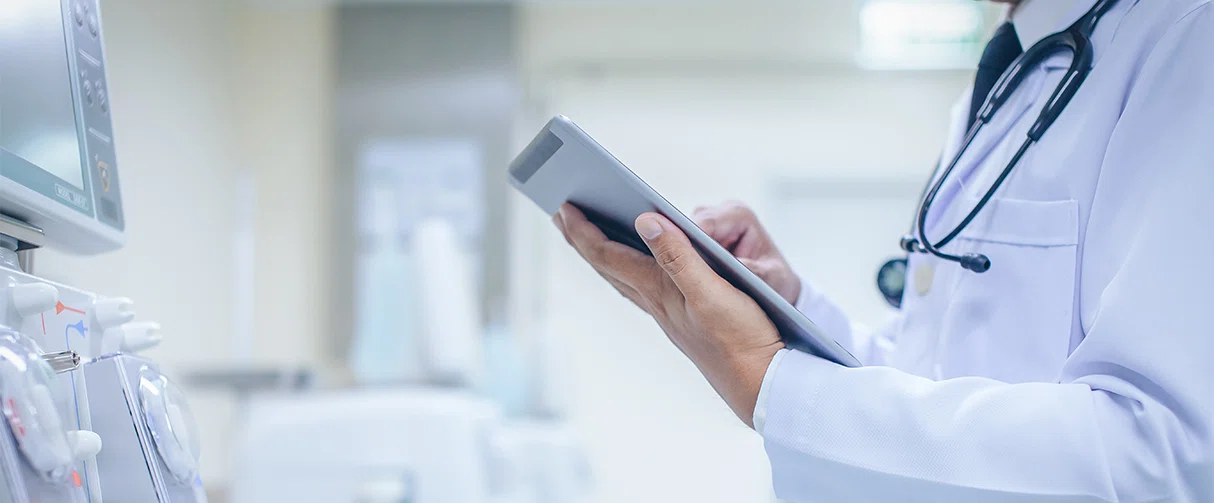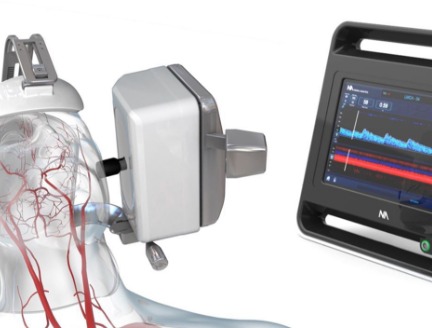


Outcomes Research
Houston Methodist Researchers Are Developing Mobile Apps to Improve Clinical Outcomes in Patients

The potential benefits of mobile health technology seem obvious: engaging with patients through mobile apps provides opportunities for users to become better informed, which often empowers them to more actively participate in their care. However, evidence supporting the effectiveness of mobile health platforms is limited. Houston Methodist researchers are developing patient-facing apps that will provide the supporting evidence needed to better understand their effectiveness. Here’s a brief look at the mobile apps Houston Methodist researchers are working on and how they’re improving patient outcomes.
Mobile App Improves Joint Replacement Surgery Outcomes
An observational study published in the journal JMIR mHealth and uHealth compared the outcomes of 2,059 patients who underwent a total hip or knee replacement by orthopedic surgeons who used mobile health technology with 2,554 similar patients of nonparticipating surgeons for a year. Patients using the mobile health app received one text message or email per day. Some were strictly informational while others required patient responses. Led by Roberta Schwartz, PhD, executive vice president and chief innovation officer of Houston Methodist, this study demonstrated that effective use of patient-facing mobile health technology can significantly improve both clinical and patient-centered care outcomes. Those participating with the mobile health technology showed shorter hospital stays, reduced post-surgery readmission rates and greater patient satisfaction than those in the group not using mobile health.
Mobile App (MOCHA) for Breast Cancer Survivors Promote Healthy Lifestyle Choices and Weight Loss
Treatment for breast cancer can lead to unintentional weight gain and obesity is associated with a higher risk of breast cancer recurrence, so it’s important for breast cancer survivors to have effective tools to make them make healthy lifestyle choices; tools designed specifically for them.
At Houston Methodist, Stephen T. C. Wong, PhD, John S. Dunn, Sr. Presidential Distinguished Chair in Biomedical Engineering and his informatics development team designed The Methodist Hospital Cancer Health Application or MOCHA, a mobile health app that functions as an interactive resource to help cancer survivors make healthy lifestyle choices and lose weight. Preliminary data indicate that the more one engages with the app, the more weight one can lose.
Breast Cancer Risk Calculator (BRISK) App May reduced Unneeded Biopsies
Houston Methodist researchers Jenny Chang, MD, Emily Herrmann Chair in Cancer Research and director of the Dr. Mary and Ron Neal Cancer Center, and Stephen T.C. Wong, PhD,developed the Breast Cancer Risk Calculator (BRISK)to provide precise risk-assessments to reduce overdiagnosis and unnecessary biopsies after an abnormal mammogram.
BRISK helps physicians more precisely characterize breast tissue for patients in subgroup BI-RADS 4; a subgroup with a post-mammogram false positive rate of more than 70 percent. Using BRISK, oncologists and radiologists can more accurately determine whether to biopsy breast tissue of this subgroup.
Their results were published in JCO: Clinical Cancer Informatics and demonstrate that BRISK can effectively identify faint pathogenic patterns and generate a more accurate risk score for better informed biopsy decisions after abnormal mammograms.

The BRISK tool, uses an integrative artificial intelligence strategy that incorporates NLP, image processing, a deep learning–based analytic model, and thousands of BI-RADS 4 patients to achieve precise breast cancer biopsy risk assessment and decision support.

Stephen T.C. Wong, PhD
Professor of Computer Science and Bioengineering in Oncology
Mobile App That Could Revolutionize Stroke Diagnosis
Diagnosing a stroke quickly in the emergency department is crucial. With each passing minute, innumerable neurons are lost as a stroke goes undiagnosed and untreated. To best utilize the most effective stroke treatments and improve patient outcomes, it’s critical to find an effective - and rapid - stroke diagnostic tool.
Toward this end, John Volpi, MD, associate professor of clinical neurology and his team at Houston Methodist developed a mobile app in collaboration with researchers at Pennsylvania State University for early and rapid diagnosis of stroke. The app uses a machine learning algorithm for computer-aided evaluation of facial movement weaknesses and speech ability in patients to determine the presence of stroke. Their data indicate that the diagnostic capability of the app is comparable to that of ER healthcare providers. Most notable, assessment using the app takes less than four minutes.
The tool could be used by emergency room professionals to more quickly determine critical next steps for the patient by caregivers or patients themselves to make self-assessments before even reaching the hospital. Both approaches would give the patient a key advantage in surviving and successfully recovering from a stroke.
Mobile health technology is an important direction for the medical fields, as mobile apps are increasingly shown to improve the effectiveness of health care and patient outcomes. The apps above are only the beginning of the mobile health efforts at Houston Methodist, where researchers and physicians are working together to more effectively usher in the future of medicine for their patients, now.
For further information on Ashizawa’s work on this topic please see the following papers:
Chih-Chun Lin, Tetsuo Ashizawa, Sheng-Han Kuo. Collaborative Efforts for Spinocerebellar Ataxia Research in the United States: CRC-SCA and READISCA. Front Neurol 2020 Aug 26;11:902. doi: 10.3389/fneur.2020.00902. eCollection 2020
Tetsuo Ashizawa, Gülin Öz, Henry L Paulson. Spinocerebellar ataxias: prospects and challenges for therapy development. Nat Rev Neurol. 2018 Oct;14(10):590-605. doi: 10.1038/s41582-018-0051-6
Katia M Konno, Marise Bueno Zonta, Ana T B Guimarães, Carlos Henrique F Camargo, Renato Puppi Munhoz, Salmo Raskin, Tetsuo Ashizawa, Helio A G Teive. Balance and physical functioning in Spinocerebellar ataxias 3 and 10. Acta Neurol Scand. 2021 Apr;143(4):458-463. doi: 10.1111/ane.13384. Epub 2020 Dec 10
Linliu Peng, Shang Wang, Zhao Chen, Yun Peng, Chunrong Wang, Zhe Long, Huirong Peng, Yuting Shi, Xuan Hou, Lijing Lei, Linlin Wan, Mingjie Liu, Guangdong Zou, Lu Shen, Kun Xia, Rong Qiu, Beisha Tang, Tetsuo Ashizawa, Thomas Klockgether, Hong Jiang. Blood Neurofilament Light Chain in Genetic Ataxia: A Meta-Analysis. Mov Disord. 2021 Sep 14. doi: 10.1002/mds.28783
Heather Lander, PhD, January 2022







